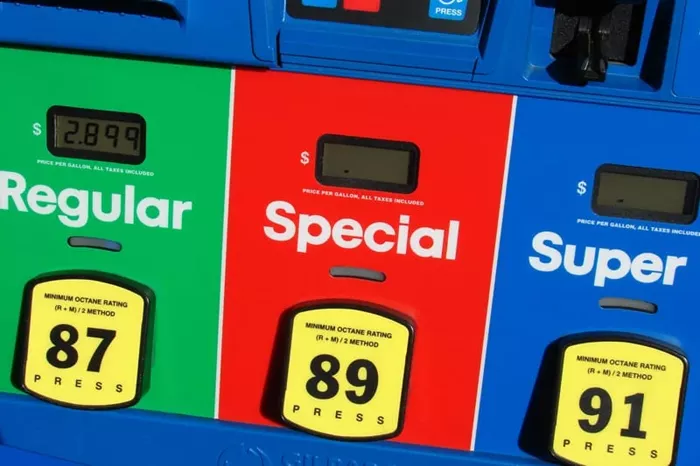Choosing the right gasoline for your vehicle is crucial for its performance and longevity. With various options available at every gas station, understanding the differences between them can help you make an informed decision. This article aims to clarify the types of gasoline commonly available, their octane ratings, and which vehicles benefit most from each type.
Types of Gasoline
Gasoline typically comes in three main varieties: Regular, Mid-grade, and Premium. The primary difference lies in their octane ratings, which indicate the fuel’s resistance to engine knocking. Engine knocking occurs when fuel prematurely ignites in the engine, causing a rattling or pinging sound and potentially damaging the engine over time.
Regular Gasoline:
1.Regular gasoline usually has an octane rating of 87 and is suitable for most cars and trucks.
2.Vehicles that do not require higher octane levels can use regular gasoline without performance issues.
3.It is the most cost-effective option among the three types.
Mid-grade Gasoline:
1.Mid-grade gasoline typically has an octane rating of around 89 to 90.
2.Some vehicles with moderate performance requirements may benefit from mid-grade gasoline to prevent engine knocking.
3.It is priced higher than regular gasoline but lower than premium.
Premium Gasoline:
1.Premium gasoline has the highest octane rating, usually 91 or higher.
2.High-performance engines, such as those found in sports cars or luxury vehicles, often require premium gasoline to operate efficiently.
3.While more expensive than regular and mid-grade gasoline, premium fuel can improve engine performance and fuel efficiency in compatible vehicles.
Understanding Octane Ratings
Octane ratings indicate the gasoline’s ability to resist premature combustion. Higher-octane fuels are more resistant to detonation under higher compression, which is why they are necessary for certain engine types.
87 Octane: Found in regular gasoline, suitable for most everyday vehicles.
89-90 Octane: Typical of mid-grade gasoline, offering a balance between cost and performance.
91+ Octane: Found in premium gasoline, essential for high-performance engines.
Vehicle Requirements
To determine which type of gasoline your vehicle requires, consult your owner’s manual or check for a label near the fuel filler cap. Automakers specify the minimum octane rating necessary for optimal performance and efficiency. Using gasoline with a lower octane rating than recommended can lead to engine knocking and reduced performance.
See also: What To Do With Expired Gasoline?
Factors Influencing Gasoline Choice
Several factors influence the type of gasoline you should use:
Compression Ratio: High-performance engines have higher compression ratios, requiring higher-octane fuel to prevent knocking.
Engine Design: Turbocharged or supercharged engines often necessitate premium gasoline due to increased pressure and temperature inside the combustion chamber.
Fuel Efficiency: While premium gasoline may offer slight improvements in fuel efficiency for some vehicles, the difference is usually marginal compared to the increased cost.
Myth Busting: Premium Gasoline Benefits
There is a common misconception that using premium gasoline enhances engine power or cleans engine components better than regular gasoline. However, unless your vehicle specifically requires premium fuel, using it offers no additional benefits beyond preventing engine knocking. Modern engines are designed to run efficiently on the minimum octane rating recommended by the manufacturer.
Cost Considerations
The price difference between regular, mid-grade, and premium gasoline can vary significantly depending on location and market conditions. While premium gasoline costs more per gallon, the actual cost difference per tankful may not be substantial unless you drive a vehicle that requires it.
Environmental Impact
The type of gasoline you choose can also have environmental implications. Cleaner-burning fuels, such as those with higher octane ratings, may produce fewer emissions during combustion. However, the overall environmental impact of gasoline use extends beyond octane ratings and includes factors such as vehicle efficiency and emissions control technologies.
Tips for Optimal Fuel Efficiency
Regardless of the gasoline type you choose, practicing good driving habits can maximize your vehicle’s fuel efficiency:
Maintain steady speeds and avoid rapid acceleration or braking.
Keep tires properly inflated to reduce rolling resistance.
Regularly service your vehicle according to the manufacturer’s recommendations.
Minimize idling and use air conditioning efficiently to conserve fuel.
Conclusion
Choosing the right type of gasoline for your vehicle involves understanding octane ratings, considering your vehicle’s requirements, and evaluating cost and performance factors. While most vehicles operate efficiently on regular gasoline, some high-performance engines necessitate premium fuel to prevent engine knocking and maintain optimal performance. Consult your owner’s manual or a qualified mechanic to determine the appropriate gasoline type for your vehicle, ensuring both its longevity and performance on the road.
Related topics:

